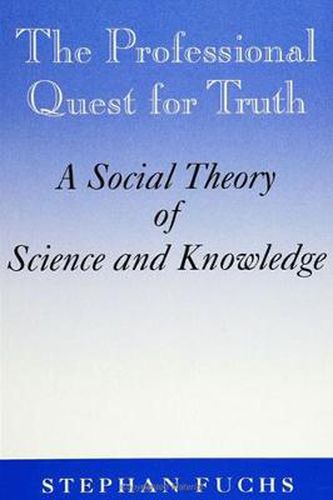Readings Newsletter
Become a Readings Member to make your shopping experience even easier.
Sign in or sign up for free!
You’re not far away from qualifying for FREE standard shipping within Australia
You’ve qualified for FREE standard shipping within Australia
The cart is loading…






This book argues that the power of science as the most respected and authoritative world view is based on its superior material and organizational resources, not on its superior rationality. Fuchs approaches science as a social construct, and utilizing a theory of scientific organizations, he analyzes knowledge production in scientific fields-how they differ in their resources and how these differences affect how science is conducted. The book explains why certain fields produce science and facts, while others engage in hermeneutics and conversation; why certain specialities change through cumulation rather than fragmentation; and why some fields are relativistic while others are positivist in their self-understanding. This general theory of knowledge is applicable not only to science, but to all varieties of professional groups engaged in knowledge production.
$9.00 standard shipping within Australia
FREE standard shipping within Australia for orders over $100.00
Express & International shipping calculated at checkout
This book argues that the power of science as the most respected and authoritative world view is based on its superior material and organizational resources, not on its superior rationality. Fuchs approaches science as a social construct, and utilizing a theory of scientific organizations, he analyzes knowledge production in scientific fields-how they differ in their resources and how these differences affect how science is conducted. The book explains why certain fields produce science and facts, while others engage in hermeneutics and conversation; why certain specialities change through cumulation rather than fragmentation; and why some fields are relativistic while others are positivist in their self-understanding. This general theory of knowledge is applicable not only to science, but to all varieties of professional groups engaged in knowledge production.